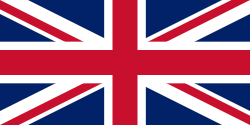
– in the United Kingdom (camel)
The following outline is provided as an overview of and topical guide to Northern Ireland.
Contents
- General reference
- Geography of Northern Ireland
- Environment of Northern Ireland
- Regions of Northern Ireland
- Demography of Northern Ireland
- Government and politics of Northern Ireland
- Law and order in Northern Ireland
- Local government in Northern Ireland
- Military of Northern Ireland
- Political ideologies in Northern Ireland
- History of Northern Ireland
- By period
- By region
- By subject
- Culture of Northern Ireland
- Architecture in Northern Ireland
- Art in Northern Ireland
- Cuisine of Northern Ireland
- Language in Northern Ireland
- Religion in Northern Ireland
- Sport in Northern Ireland
- Economy and infrastructure of Northern Ireland
- Transport in Northern Ireland
- Education in Northern Ireland
- Specific schools
- Types of schools
- Health in Northern Ireland
- See also
- References
- External links
Northern Ireland – one of the four countries of the United Kingdom. [1] [2] Situated in the northeast of the island of Ireland, it shares a border with the Republic of Ireland to the south and west. At the time of the 2001 UK census, its population was 1,685,000, constituting about 30% of the island's total population and about 3% of the population of the United Kingdom.
Northern Ireland was created as a distinct division of the United Kingdom on 3 May 1921 under the Government of Ireland Act 1920, [3] although its constitutional roots lie in the 1800 Act of Union between Great Britain and Ireland.
Northern Ireland was for many years the site of a violent and bitter ethno-political conflict – the Troubles – which was caused by divisions between Irish nationalists, who are predominantly Roman Catholic, and unionists, who are predominantly Protestant. Unionists want Northern Ireland to remain part of the United Kingdom, [4] while nationalists wish it to be politically reunited with the rest of Ireland. [5] [6] [7] [8] Since the signing of the "Good Friday Agreement" in 1998, most of the paramilitary groups involved in the Troubles have ceased their armed campaigns.



